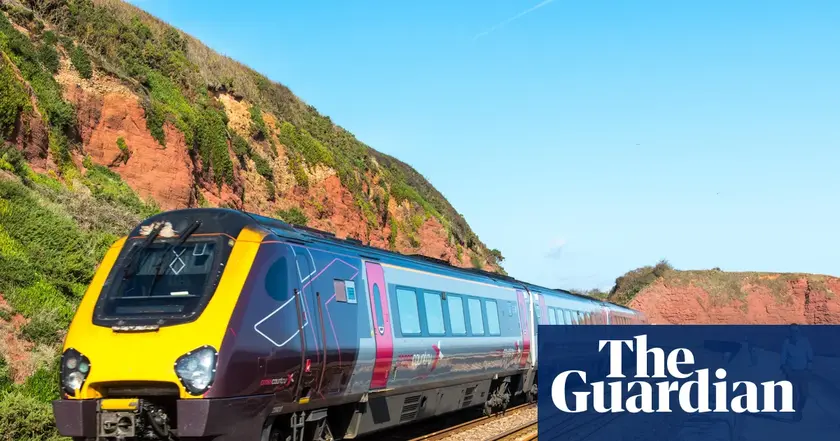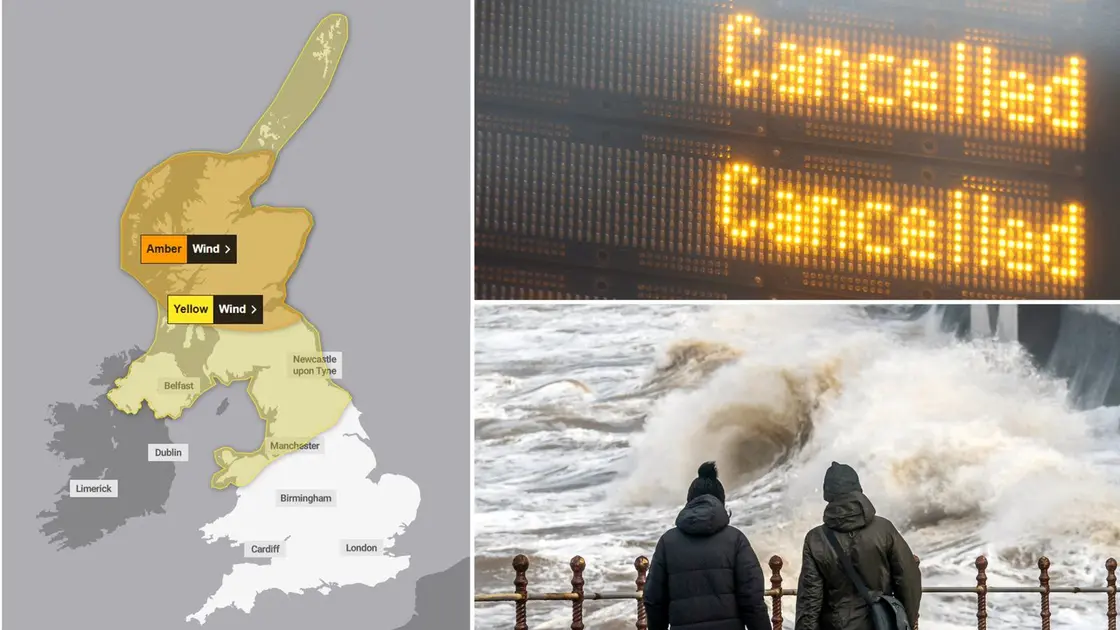T4K3.news
Rail services in southern England reduced due to dry conditions
Train journeys face delays as South Western Railway limits speed amid dry soil affecting tracks.

Parts of southern England see train service cuts due to dried tracks from a very dry spring.
Rail services in southern England cut due to dry weather
Some rail services in southern England are being reduced because of dry soil conditions affecting train tracks. South Western Railway announced that trains cannot maintain full speed on embankments in Dorset and Devon, where the sunniest spring in over a century has led to a lack of moisture. This has caused embankments to shrink significantly. As a result, journeys from London Waterloo to Exeter will take an additional hour, with trains now restricted to 40mph in sections that typically allow speeds of 85mph. South Western Railway is reducing the number of services in response to safety concerns, anticipating that dry conditions may prolong these restrictions. Network Rail officials have emphasized that customer safety remains the top priority, and they will review conditions closely to restore the normal timetable as soon as possible.
Key Takeaways
"Safety is our number one priority, which is why we must impose these speed restrictions."
Tom Desmond from Network Rail emphasizes the importance of customer safety.
"We have no alternative but to introduce a reduced timetable."
Stuart Meek from South Western Railway discusses the decision to cut services due to safety concerns.
This decision reflects how climate change is impacting public infrastructure in the UK. With the climate becoming increasingly unstable, rail services face challenges unlike any seen before. The recent dry spring marks the second driest on record in England, leading to significant disruptions just a year after railway services in Kent were curtailed due to heavy rainfall. Rail companies like South Western Railway are now grappling with the reality that maintenance and budgeting for climate adaptation must evolve rapidly. A £3bn investment by Network Rail through 2029 aims to address these emerging climate challenges, but service cuts may frustrate travelers in the short term.
Highlights
- Train services are cut as soil shrinks from lack of moisture.
- Safety is our number one priority, which is why we impose speed limits.
- This spring was the driest England has seen since 1976.
- Investing £3bn to tackle climate change effects is crucial.
Service cuts due to climatic conditions
The railway service cuts raise concerns about public transportation reliability as climate change increasingly impacts infrastructure. This can lead to greater public backlash as communities rely on these services.
Monitoring weather conditions will be crucial for future rail operations.
Enjoyed this? Let your friends know!
Related News

Storm Floris leads to train cancellations and weather warnings

Hollybrook GP closure plan

UK faces fourth heatwave

Wildfires lead to evacuations in Athens

Wildfires prompt evacuation in Turkey's Bursa

US heat dome brings extreme conditions

One dead as wildfire engulfs southern France

UK heat alert update
